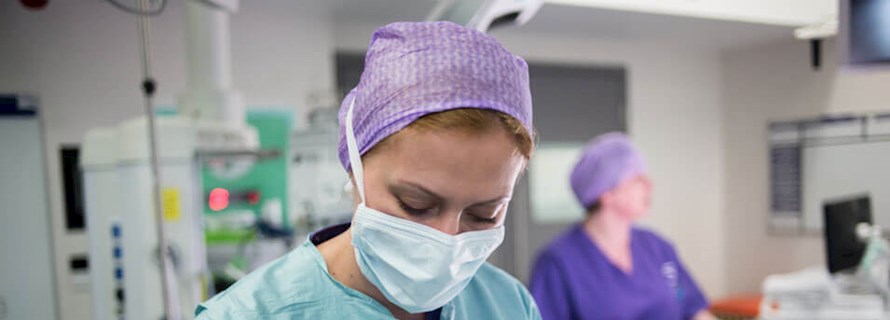Spinal cord injury
Our highly advanced, multidisciplinary rehabilitation service combines treatment programmes, consultants and therapists
About
Need to know
-
Symptoms of spinal cord injury icon plus
Most spinal cord injuries are the result of accidents on the road, falls, sports or similar types of trauma. However, spinal cord injuries can also occur more gradually, such as through tumours, degenerative diseases or the rare but serious cauda equina syndrome, which severely compresses the nerves in your lower back. When spinal cord damage happens in one of these ways, you may experience back pain that becomes more intense over time.
You may notice other symptoms too, depending on the underlying cause. These could include tingling and numbness in your feet, hands or base of your back, or a loss of bowel or bladder control.
-
Diagnosis icon plus
There are a number of tests, and these will usually include an X-ray, CT scan or MRI scan. Spinal cord injuries are usually identified as being complete or incomplete. Complete means that damage has happened right across the spinal cord at the site of injury, and there is no sensation or muscle control beneath that point. With incomplete injuries, there may be some feeling or movement below the point of damage. Complete cord injuries involve no recovery of function with time whilst there may be some recovery in incomplete injuries.
Your Doctor will also check for secondary conditions that can arise following spinal injury, ranging from blood clots in the legs or lungs to skin breakdown in addition to chest or urinary tract infections.
-
Potential treatment options icon plus
Treating spinal cord injuries is often complex and involves specialists across several disciplines. Our team includes: - spinal consultants - clinical psychologists - specialist rehabilitation nurses - physiotherapists - speech and language therapists - occupational therapists. The aim is to create a co-ordinated approach from initial assessment and prognosis, through any surgery, intensive care and acute rehabilitation to the continued monitoring of your progress. Your treatment and rehabilitation will be tailored specifically to your injury and give consideration to your personal goals.
Our consultants




Our facilities
From complex surgery to straightforward procedures, we provide exceptional care across our network of hospitals, outpatient centres and specialist clinics.
Book an appointment
Our team can help with any enquiries or you can make an appointment with one of our experienced consultants.
Call us today
020 7079 4344